Photo: Salihah Saadiq
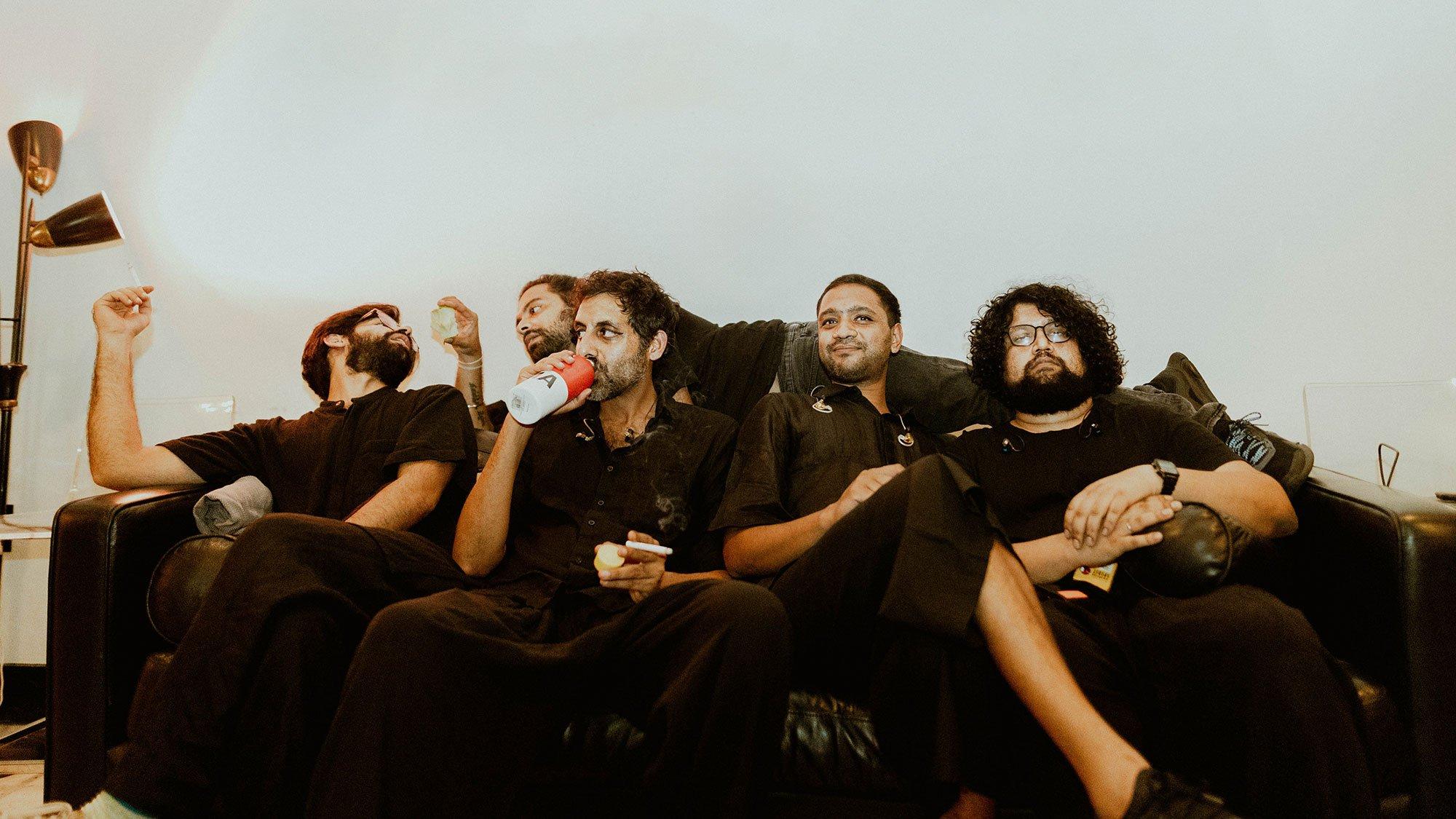
interview
Peter Cat Recording Co. In 'BETA' Mode: How The Elusive Indian Band Melds Sounds & Sincerity
Peter Cat Recording Co.'s latest album, 'BETA,' is a study in growth — both sonically and in life. Ahead of an international tour, including dates with Khruangbin, members of the band discuss their aural evolution.
With a voice that sounds as if it were emanating from the depths of a smoky lounge somewhere just off the Las Vegas strip, guitarist and singer Suryakant Sawhney beckons you into a world that is at once foreign and very familiar. "Maybe I'm a fool, a fool like you/ Believing in heaven, from inside a zoo," the Peter Cat Recording Co. frontman croons over a sparse melody that swells with each verse.
Wherever in the world we are — the group's latest album begins with silence, then explodes with a speaker-breaking bang designed to disorient — is irrelevant. Peter Cat Recording Co. may be based in New Delhi, India, but the quintet's sonic locale reflects a global interest. Their latest album, BETA, melds guitar-driven rock with jazz, Indian pop, and psychedelia.
"Making something new now is this concerted process you have to take," Sawhney tells GRAMMY.com. "You mix your own culture with what you learned outside your own culture, and you start making these new mutants sort of songs."
These musical mutations appear and evolve through Peter Cat Recording Co.'s catalog. Over multiple studio albums and a compilation, the group has tackled big band ("Portrait Of A Time"), dance music ("Love Demons") and, more recently, surrealist disco on BETA's "21c." But BETA offers more than simply scratching the genre-bending itches of its members; it delivers "stories about the future told 50 years in the past, to make sense of the present, on our only home, planet Earth,” per a press release on the largely songwriting-based project.
The self-produced album tackles themes of marriage, childbirth and beyond. In fact, a child was crucial in the name of their record: Members put five potential album titles in a hat and let drummer Karan Singh's 6-month-old son pick one. BETA — a Hindi word for "child" — was the winner.
On Aug. 14, the group will kick off a 77-date tour through the U.S., Europe, and India, featuring both headlining sets and support for Khruangbin. Suryakant Sawhney and multi-instrumentalist Kartik Sundareshan Pillai spoke with GRAMMY.com about creating BETA, the state of rock bands in India, and more.
This interview has been edited for clarity.
Tell us a bit about the seeds that were planted that led to this new record.
Suryakant Sawhney: We had a specific recording session, which I think really jumpstarted the whole process. We all lived in Goa for the last few years, and there was this one little house we rented out; this old, 2-300-year old little cottage, which was owned by a priest. I was trying to do a film shoot or a music video shoot or something, and it just sounded great and looked beautiful.
So we decided to rent it from the church. We landed up there at 2, 3 a.m., set up for a few hours, and I think recorded a bunch of music for five, six hours 'til the dawn.
Kartik Sundareshan Pillai: I think it's that recording space. Later on, [we went to] Joshua Tree and there's another recording studio over there that we worked at for two weeks. Plus, just having a bunch of songs that we knew were going to fit together.
How was the vibe out in Joshua Tree?
Pillai: Yeah, that was pretty incredible. Rabbits and cherries. It was a very, very, very pretty place.
And take us into the writing of the record a little bit. How does that work with you guys?
Sawhney: There's basically three different ways we go about writing a song. One will be, one of the songwriters — in most cases, it's me right now — I'll bring a song which is more than half finished in terms of arrangement, writing lyrics, where the song space is. Then the rest of the band joins in and we try to finish it.
Then there's something which is far more spare, and then everybody just takes a go at it, like adding parts. And then the third variation, there's almost nothing, which is rarer. We’re very much a songwriter-driven project.
Then it takes years to just come to terms with it, make our peace with it, because we also produce it ourselves. We get into this unholy cycle of making it, hating it, wasting our time, then re-recording it, then looking back and being like, "Oh, that was good enough. Why dont it again?" Finally, at the end of the day, you settle with what you have.
I was reading a 'Variety' interview with you guys last year and they called you “One of the last few remaining bands in India.” That was a year ago. What's the landscape in your slice of the country right now as far as indie and guitar music?
Pillai: I think it's more electronic [music happening], but there are lots of bands now slowly coming back. There was one period of time where there was almost nothing, and then now they're starting to kind of pop up here and there, like Donraj, All Parks Are Green. Pacifist.
Then there's some friends of ours who also have makeshift bands. There's another band called Nigambodh.
Sawhney: Who makes a living off being a band? I would say at this point, [there are] very few left.
Kind of the same in America, to be honest. What precipitated interest kicking up, or the number of bands kicking up in the last year or so?
Pillai: Boredom, I guess.
Sawhney: I think it's just that every new generation has to make the same mistake and figure out this is not a very economically viable process. They don't realize it because being a band is initially so cool, or it feels good, then it gets complicated.
There's a lot of hip-hop being made right now in India. It's finally caught up here. And there's little electronic music. I think people who make bands always will definitely for a while be more marginal in the music scene, just because it's such a labor-intensive process, as compared to the other forms of music.
Read more: The Evolution Of Bollywood Music In 10 Songs: From "Awaara Hoon" To "Naatu Naatu"
I also perform as an electronic musician, and I can tell you that's just easier. I go on stage with my mic and my DJ console and everything, and I'm basically doing karaoke. All of that is just so simple compared to being in a band, which is a labor-intensive, economic-intensive life-intensive process. It's a real gamble.
What has Peter Cat Recording Co. done to engender that resilience, as a band, but also a business?
Sawhney: I think we've definitely had moments where it looked really bleak and difficult, and something lucky happens. We also persevered. We did a lot of it ourselves initially and we still do, in terms of learning how to record ourselves, make our own videos, produce ourselves, managing the whole thing. We learned how to produce the music ourselves at a very early stage, and that made us self-sufficient.
Pillai: Songwriting to recording, to producing, mixing, mastering, artwork — literally everything we did learn. Eventually we got management and we also got lucky with labels and people approaching us.
Can you talk about crafting the sound of the new record, or how you wanted it to come across from a production standpoint?
Sawhney: At least in the production aspect, I think there's a bit more experimentation in terms of bringing in non-classically band sounds, moving away from just a guitar-driven thing. There's a lot more sample electronic music, hip-hop related elements. That just comes from the fact that we make multiple kinds of music individually. The band is sort of just one of our things and it becomes something we bring to the band and it adds up slowly.
Some songs just take on a life of their own that way. From my angle, there was definitely a concerted effort to move away from the older sound of Bismillah. I was hoping that there are some instances in the new album where you could sit down and be like, I'm not sure what this is, and still preserve the fact that it's enjoyable and accessible at some point.
Making something new now is this concerted process you have to take. You mix your own culture with what you learned outside your own culture, and you start making these new mutants sort of songs. [The trick is] how to make them sound sincere in a way, without just forcing it.
Pillai: In the songs that I ended up writing, they just come in some kind of burst. For one of the songs, how we actually ended up composing it was [keyboard/trumpet player Rohit] Gupta played the keyboard separately. I went in an hour later when I had woken up and I just sang to what he had already played; that's pretty much already 70 percent the song. I mostly just tend to go with that first moment of inspiration, just follow it through.
Any MVP moments from your bandmates that you'd like to shout out on the record?
Sawhney: Some of them were in Joshua Tree. I think after the last tour we did in America, we had some great moments of [working] on something on the spot.
Pillai: [On "Just Another Love Song"], Suryakant and [bassist Dhruv] Bhola, just played it through. I think we took one take of this song. It was completely fine and we just kept it.
Awesome. And what do you guys have coming up? What would you like to plug?
Sawhney: We have that new album apparently. And then we have a tour coming up, an elaborate, long, drawn-out tour. We'll go to America, we'll go to Europe and we'll end in India in December. And I think in the meantime, we'll be making some more videos. We'll be doing the standard stuff right now and hopefully by the end we'll twist into something more unnecessary.
Where do you see your regional scene going in the next five, 10 years? What trajectory is it on?
Pillai: Not really a cohort. It's just a bunch of bands. The indie scene by itself has been getting bigger ever since 2007, or the '90s even. [I'd expect] more festivals, just more stuff happening in general. Five, 10 years, it should just be bigger,
Sawhney: Bands I don't see going anywhere. I think hip-hop will reach some sort of crescendo. Electronic music is always going to do okay because I think rich people really enjoy it in India. I don't know if that's pessimistic, but that's kind how it works.
Pillai: I think everything's going to be fine.
Do you have a favorite song on 'BETA'?
Pillai: I believe it was the third song, "Suddenly." But it all flows nicely. What's your favorite song?
Sawhney: "Beautiful Life," because I hate my life. [Chuckles lightly.] So it's nice to write a song about a better life.
With reporting by Morgan Enos and Jessica Lipsky
Latest News & Exclusive Videos

NIKI Covers Goo Goo Dolls "Iris"
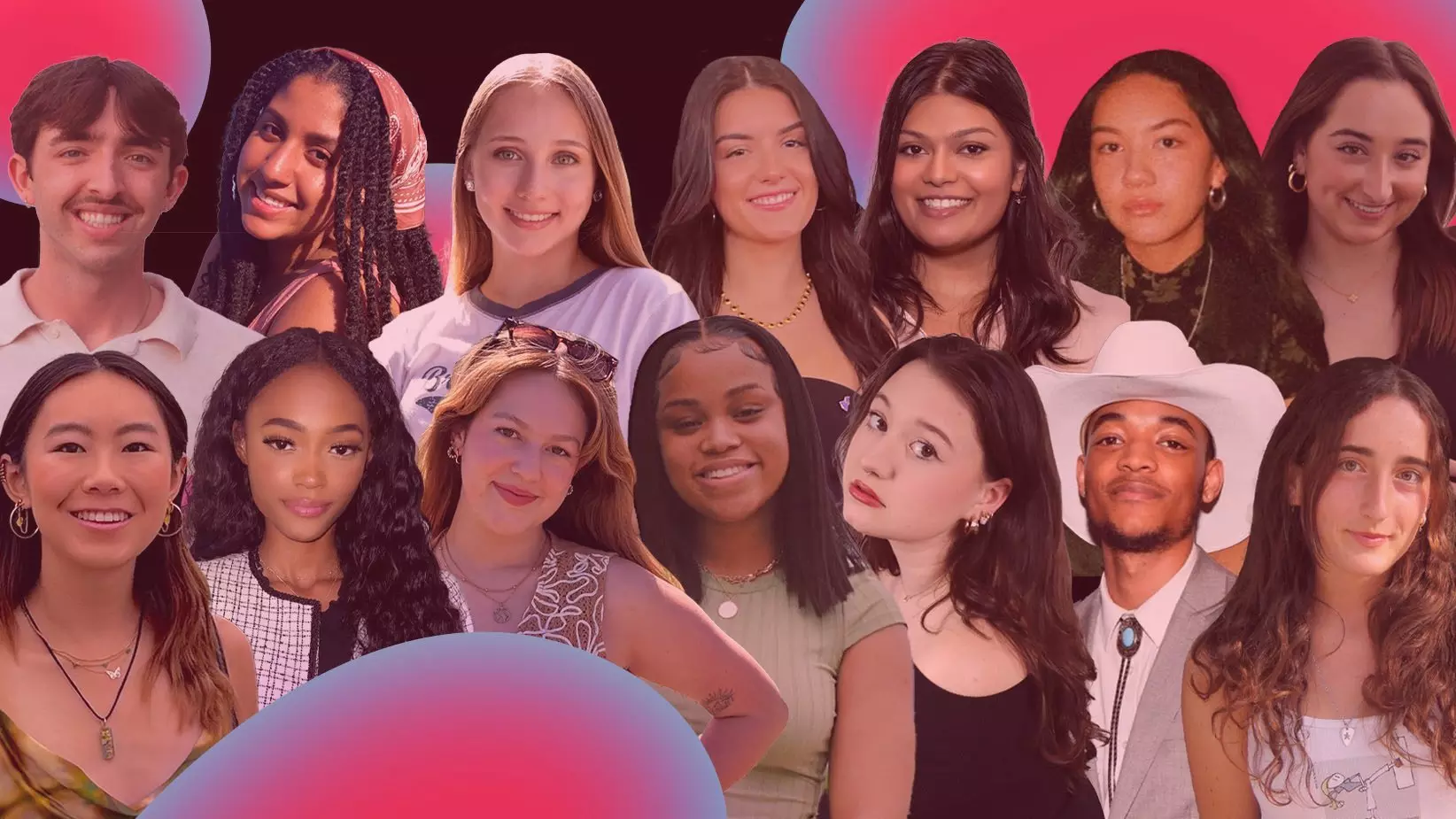
Meet GRAMMY U's 2024-2025 Student Representatives
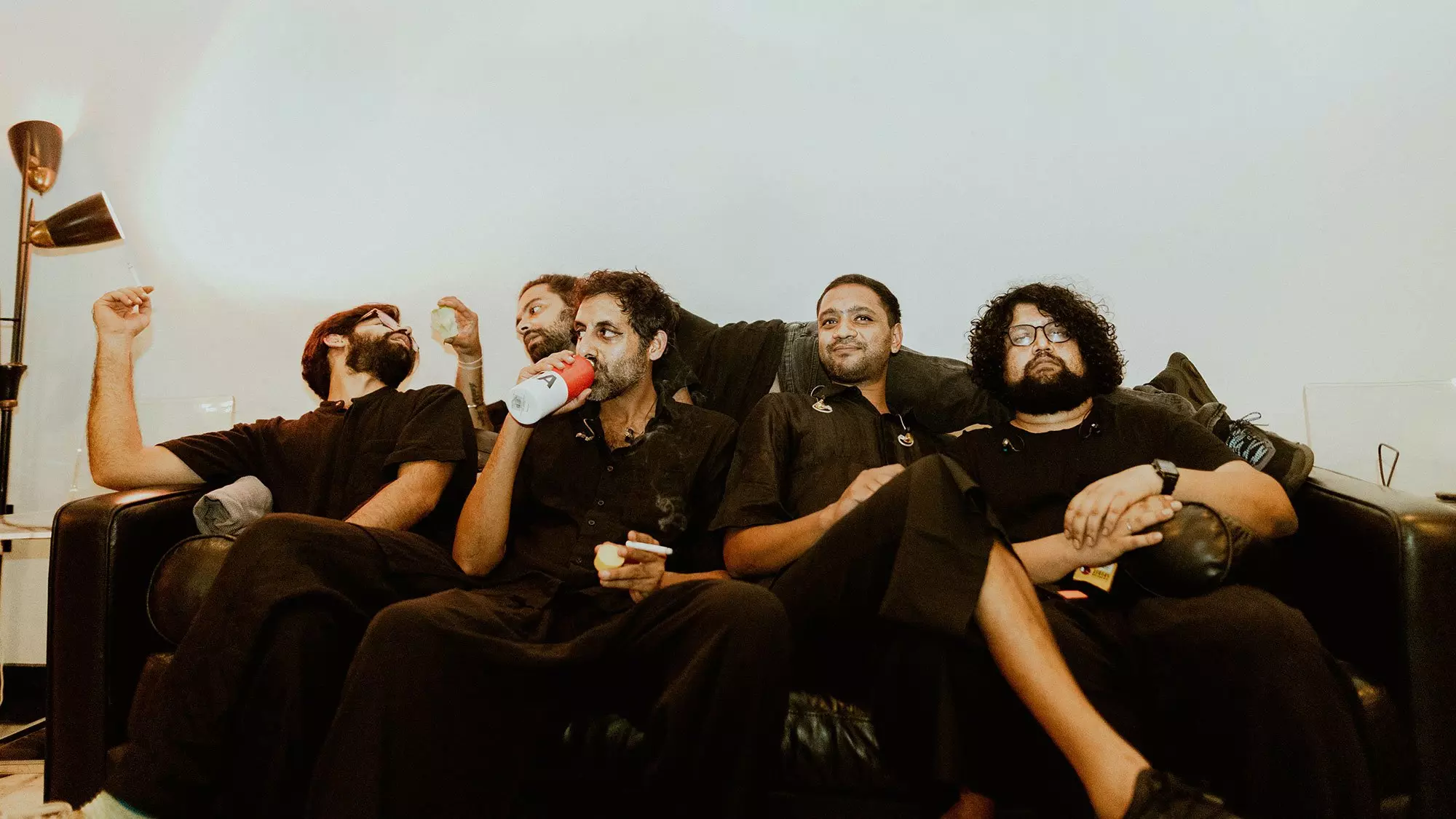
Peter Cat Recording Co. In 'BETA' Mode: How The Elusive Indian Band Melds Sounds & Sincerity
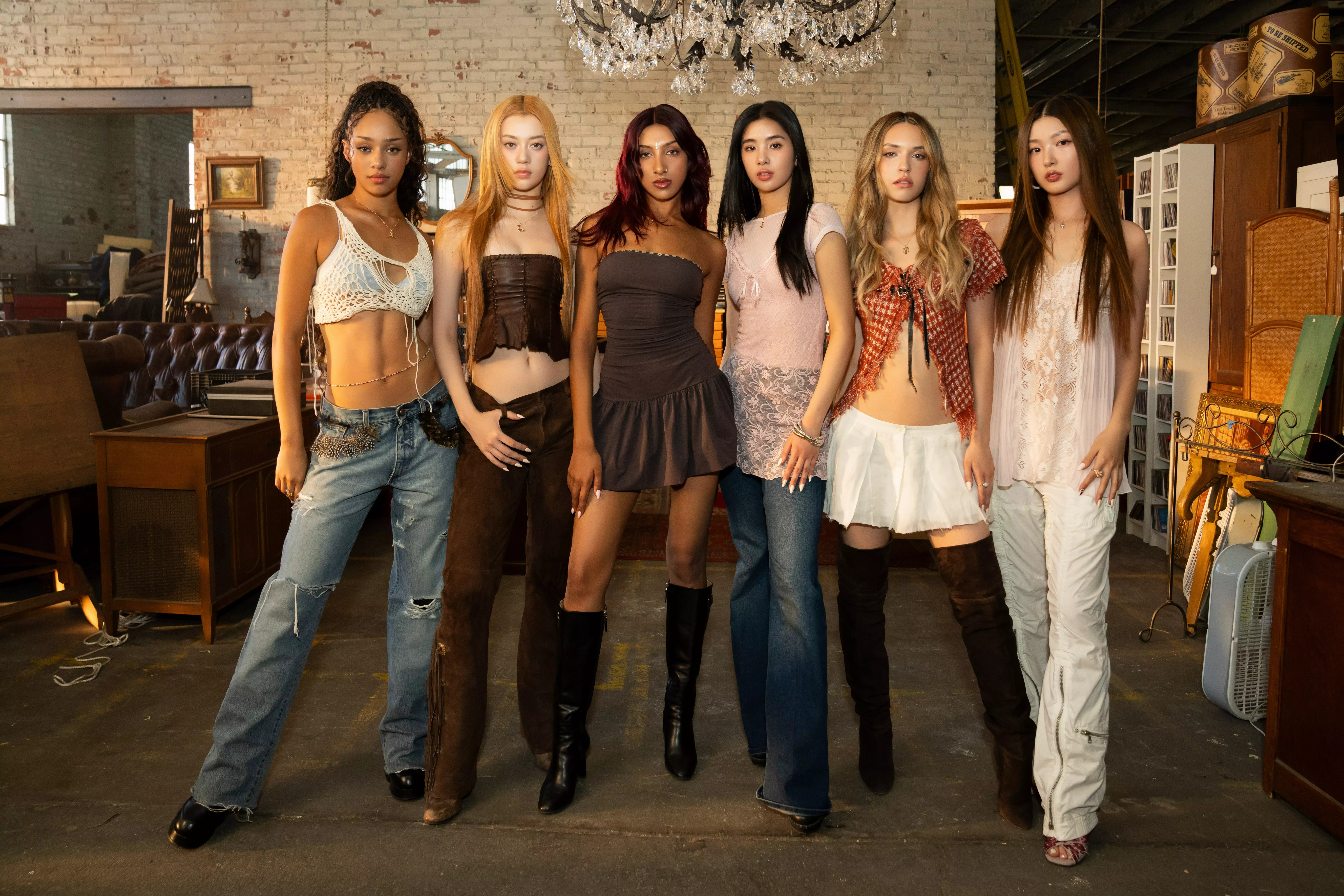
Get To Know KATSEYE: The Global Girl Group Styled After K-Pop Superstars
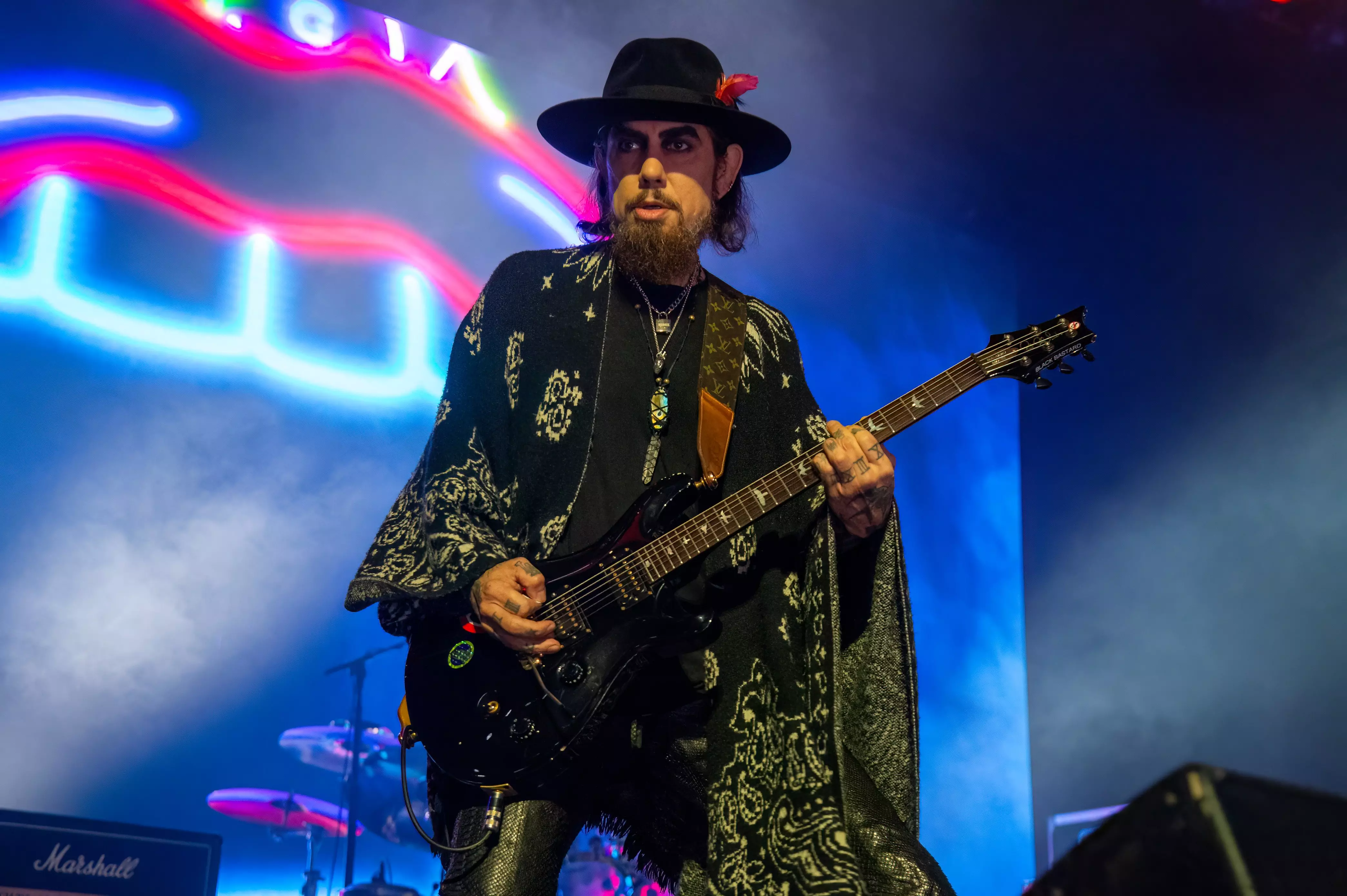
Dave Navarro Talks Jane's Addiction's "Imminent Redemption" & The Foursome’s "Secret Sauce"
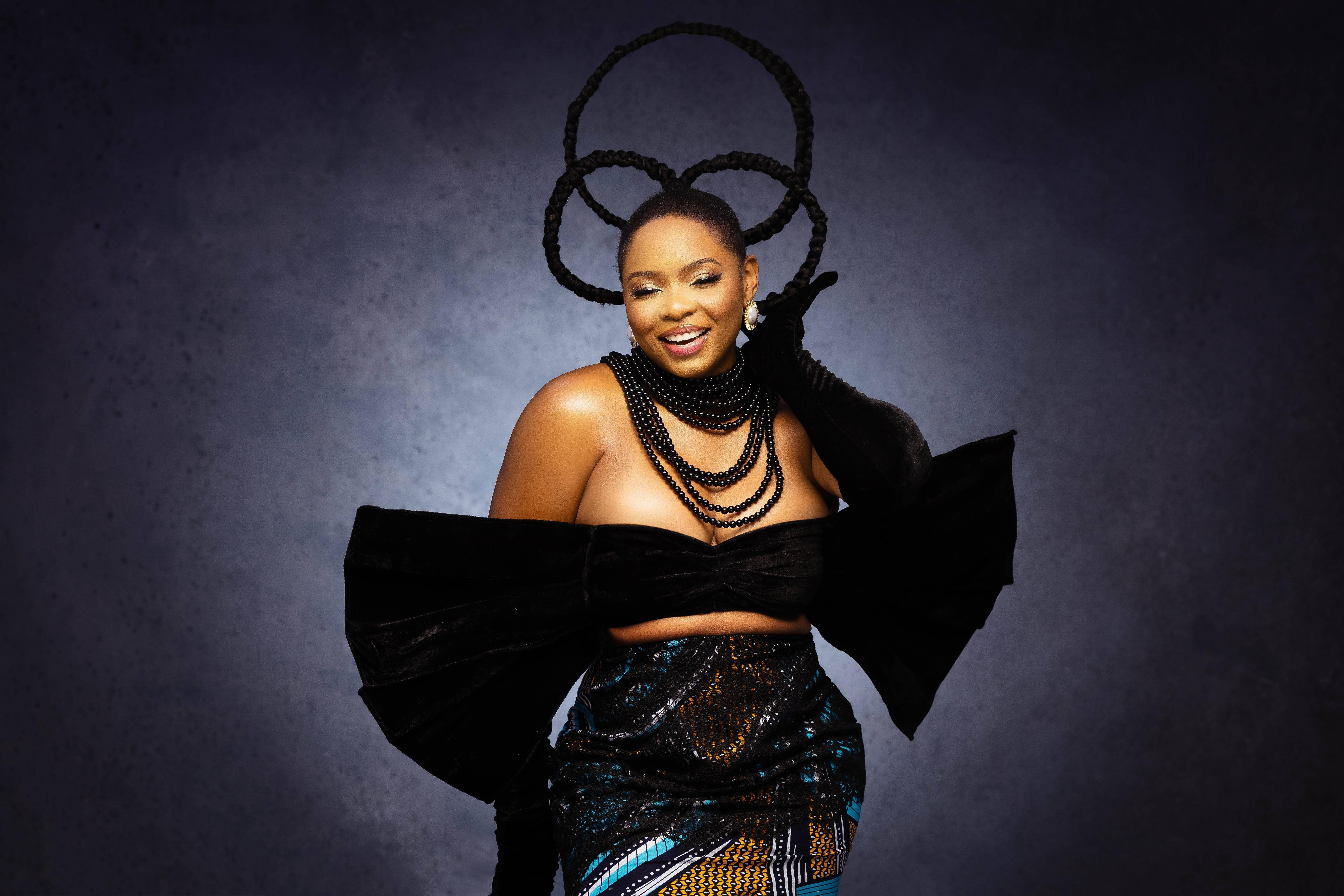
Photo: Emmanuel Oyeleke
interview
Afropop Legend Yemi Alade On New Album, 'Rebel Queen,' Historic Hits, & Working With Beyoncé
Ahead of the release of her latest album, 'Rebel Queen,' Yemi Alade discussed her career over the last decade and what it meant to work with Beyoncé. "That lady has really touched my life in a way that I will never forget"
Before Afrobeats icons Burna Boy, WizKid, and Tyla became globally recognized household names, Yemi Alade was the continent’s biggest pop star. On July 26, she will release her sixth studio album, Rebel Queen, which expands her repertoire with a world of adventurous pop sounds.
The Nigerian singer/songwriter burst onto the African pop music scene in 2014 with "Johnny," a now-classic tune that gained acclaim by its iconic video featuring a TV news reporter tracking the titular womanizer. The video made her the first Nigerian female artist to hit 100 million views on YouTube.
Since then, Alade has had an illustrious career, collaborating with artists including Rick Ross, earning another 100 million-view video for "Oh My Gosh," and featuring alongside fellow Africans Mr. Eazi and Tekno on the Beyoncé-curated soundtrack for The Lion King.
Her latest album, Rebel Queen, includes high-profile collaborations with Angélique Kidjo, Ziggy Marley, and dancehall star Konshens. The album promises a genre-jumping journey across the globe, incorporating amapiano ("Soweto to Ibiza"), highlife ("Chairman"), and even reggae ("Peace and Love") and dancehall ("Bop’).
Ahead of Rebel Queen’s release, GRAMMY.com caught up with Alade about her progression as an artist, what it was like to work with Beyoncé and her team, and bridging international success.
This interview has been edited for clarity and length.
Your new album, 'Rebel Queen', contains influences from all over Africa and beyond. Was that intentional?
Yes, you're correct that I wanted to make sure that the album had sounds that I actually genuinely love, from the amapiano influence to dancehall. And also, I personally wanted to go back to the foundation of Afrobeats, which are sounds and genres that I listened to growing up as a kid. When my parents took me to family parties, there were certain melodies and guitar strums that I fell in love with. And I wanted to revisit those nostalgic moments and put it all in this album.
There are a lot of high-profile collaborations on this record, such as Anjélique Kidjo and Ziggy Marley. How did you decide who to work with on 'Rebel Queen'?
Honestly my life is a roller coaster, same for every touring artist. We try to gather as much as we can while being in motion. Anjélique Kidjo is like my music mum, I love her. And when I made the record, "African Woman," who else would I feature on such a song if not Anjélique? And as for Ziggy, he and I have a song that we did previously ("Look Who’s Dancing Now"), which was his song, and he featured me. And I wanted a tit-for-tat moment. So I sent the song to him. I felt like, who else but him? Every feature was necessary to complete the melody for each song, they are such a huge part of each one, not just in the fresh vibe that they bring.
Learn more: Watch Yemi Alade's Enchanting Performance Of "Tomorrow" | Global Spin
It’s been ten years since you broke out with the massive hit "Johnny." Back then, African pop music was relatively unknown in America. Since then, African artists have gained global recognition. Do you see yourself as a pioneer for the current Afropop movement?
I agree with you 100 percent, there is no way you authentically go through the history of, you know, building a bridge between Africa and the rest of the world via music without mentioning a song like "Johnny." It's definitely an honor for me to be the vessel that delivers such amazing music to the world. Of course, there were people way before me who also did the same thing. We're talking about Fela [Kuti]. We're talking about King Sunny Ade. At the end of the day, yes, music is metamorphosing into so much more. And definitely, I'm a pioneer [laughs].
You have a strong sense of storytelling, especially in your music videos. "Johnny" has an entire storyline about a news reporter investigating a womanizer. How important is that kind of storytelling to your music?
Storytelling is a big part of my artistry, because I feel everybody loves a good story. I find that even when I'm writing most times in the studio, there's always a picture I'm trying to paint, and it only makes sense for the visuals to kind of match that most of the time. Except sometimes we decide to make it a performance video because I just feel like dancing.
What’s the most memorable video you’ve ever done?
Every one of my videos has taken a lot of pain, sweat, and even some tears. But I think "Johnny" is such a masterpiece, because it resonated with the entire world, and Africa especially. And it pretty much helped me to stay on my way through the industry, because it became my identity. That song and that video was the platform for the brand and everything that I am today. you know, so that is definitely the most memorable, in a good way.
You've traveled to and performed in America several times in your career. What's your overall impression?
I think I've done four or five American tours. And yo, America is so big [laughs]. My first American tour had me in shambles, because of the flights. I didn't realize that to go from one city to another, I might have to connect once or twice depending on how far I'm going. So the flights had me in shambles, but the energy of the people? Oh my days, lit! America is definitely one of my favorite places. I’m always reminding my agents to make sure that they include American cities on my tours, which is why even for the album listening parties for Rebel Queen, we did the first one in Paris, then London, and then we had to come to New York as well. And then just yesterday, we had one in Lagos as well.
Since you first became popular, a lot of Afrobeats artists have gained a following abroad like Burna Boy and WizKid. It seems as though, at least looking at the artists that break outside of Africa, that the genre is still very male-dominated. Do you agree with that? And do you think there’s potential for more female artists to break out internationally?
Honestly, when I started out, the odds were really way more against women than they are right now, in that, there were female artists sprouting maybe once every two years, or once every year, and barely hanging around long enough. But now, the story is different. And I give kudos to all the women before me and all the women with me. Yes, in a male dominated society, it seems as though my male counterparts get their roses and their flowers for a second. And you know, once in a while someone comes back and remembers, "Oh, there's Yemi Alade." Do you know what I mean?
I was speaking to someone earlier today and I was saying, I think what surprises me the most is that, I feel like there are no expectations of female artists. So like, if we do or we don't, people are just moving on. But I'm not the one to play victim, never. Despite the odds, you see that the females continue to be resilient, because we know. I know deep within that my existence is definitely of value to so many people out there.
What do you think of the upcoming generation of talent like Tems and Ayra Starr and Tyla, who recently won the first GRAMMY Award for Best African Music Performance for "Water?"
Exceptional, exceptional artists. As you just mentioned, they're doing amazingly well. And, you know, these women are unique in their own ways. And I want to just say that I believe it's just the starting point for them. There's so much to come. And there's so many other females that are still en route to greatness.
How have you seen the music industry in Africa evolve? And what sorts of challenges do you think African musicians face today?
I personally feel like, with all the momentum that Afrobeats has got, we need authentic platforms that can actually check the streaming numbers that are coming in for music, especially within Africa. Because at the moment it’s mostly Apple, Spotify, etc. But there are other platforms here in Africa that most Africans use, and they have more of a database compared to Apple and Spotify. We've come to a point where we need to have more credible numbers, because there's millions of people streaming music in Africa that are not on those platforms.
So you think that these local platforms need to be counted alongside Apple and Spotify?
100 percent. In Nigeria there’s two: Audiomack and Boomplay. Boomplay is a big deal.
You’re going on a decade in the industry. In all that time, what's one moment or one achievement that gives you the greatest sense of accomplishment? What are you most proud of in your career?
That’s a big question…I think I have an idea, because there've been so many moments in my life and in my career that have aligned with my dreams coming true. Number one is each time that I'm approached by a complete stranger and the stranger tells me "Oh my God, Yemi. You don't know what your music has done for me. Your music has gotten me through so much grief." Some people walk up to me and tell me that they just had the biggest struggle in their life and they listen to my music, and it always sends them into a realm of joy and happiness. Honestly, I feel accomplished in those moments, because when I record my music, I always say, the thing I'm trying to spread through my music the most is love, joy and happiness. So to have people testify to that, it means to me that the magic is complete, that my job is actually effective. So that makes me feel very accomplished.
On a personal note, an accomplishment that I am most grateful to is the fact that I'm always able to comfortably take care of my family. It's something that I would never play down. You know, I'm just grateful to God for that.
And lastly, aside from winning a GRAMMY through Angelique Kidjo — you know, I've met a lot of amazing people, and Beyoncé is one of them. So at the end of the day, it's a full circle moment for me. I'm just enjoying the ride.
You know, it’s funny you mentioned Beyoncé, I was just about to ask you what it was like to work with her.
Oh my days — wow, working with her, it was such an experience for myself and my team. It was like, we're literally awake, walking in the dreams that we have dreamt for so long.The process of her team contacting us was a bit weird, because my management didn't realize that Parkwood [Entertainment] was a real company, that they were emailing them and talking about Beyoncé. They assumed that it was some kind of scam artist. But when they had sent it to me, I was like "What? Parkwood? Who doesn’t know Parkwood is Beyoncé?"
So it turned out that it was for real, and we went to L.A. where the studio was, and I lost my voice for 24 hours — I couldn’t talk, I couldn’t sing. I just soaked up all the vitamin C's and hot teas and Throat Coats I could get. I managed to regain a little bit of my voice back and that's what I was able to record that day. That was a miracle for me. But one of the most memorable moments was actually meeting her in person. After the album, Lion King, came out, the movie was being premiered in London, and I happened to be in London at that time. We had met her in person, we met Jay Z. It was such a full circle moment. Honestly, that lady has really touched my life in a way that I will never forget. Because she could have lived her life without doing what she did, but she decided to reach out to people she felt were pillars of African music and pay homage to Africa. And I'm happy to have been part of that moment.
More News About African Music
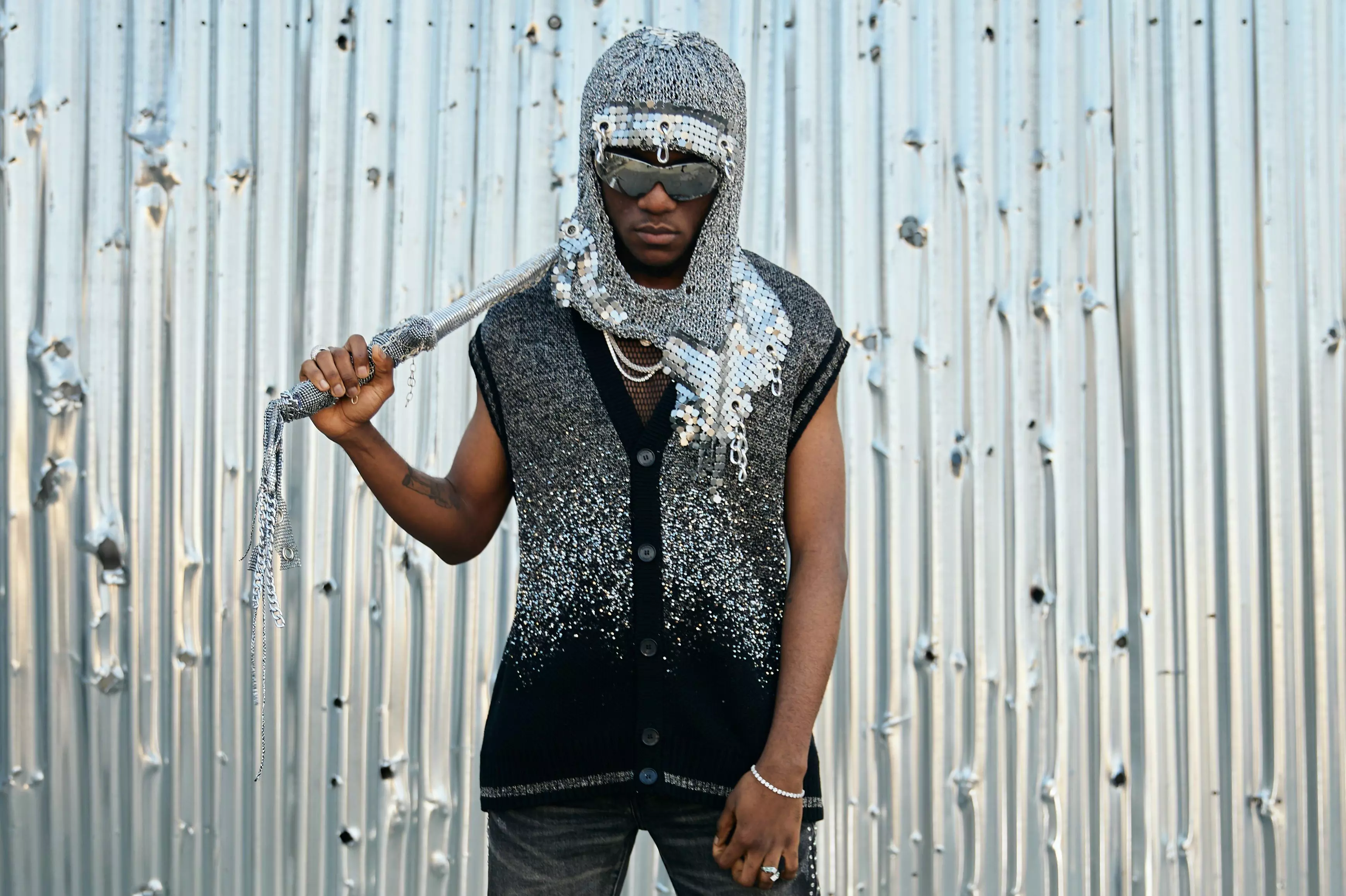
Meet Victony: The Afrobeats Sensation Sharing Importance Of Being 'Stubborn'

Watch Candy Bleakz Share Her AKG Microphone
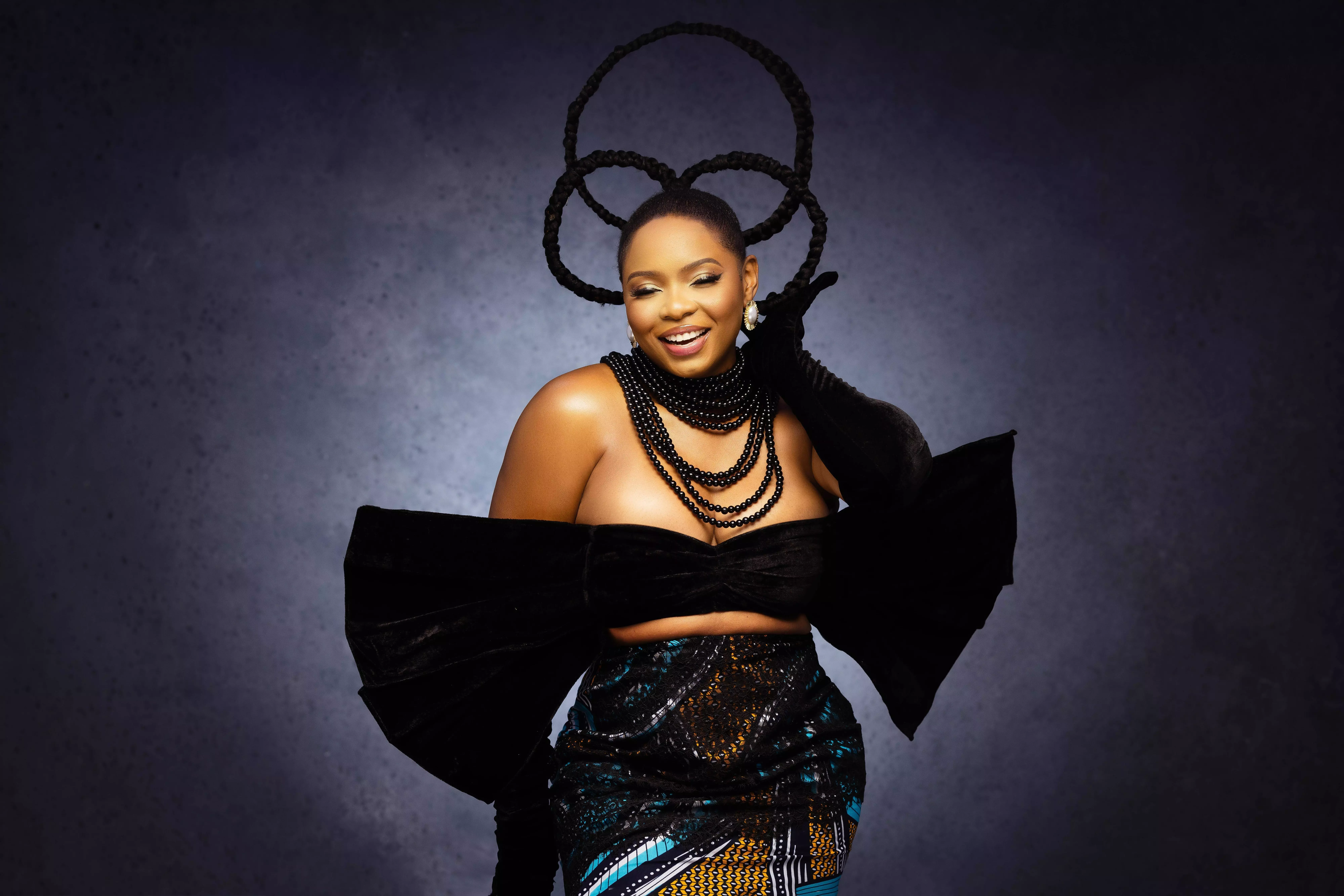
Afropop Legend Yemi Alade On New Album, 'Rebel Queen,' Historic Hits, & Working With Beyoncé

Tekno Talks New Music, Touring America & His "Elden Ring" Obsession
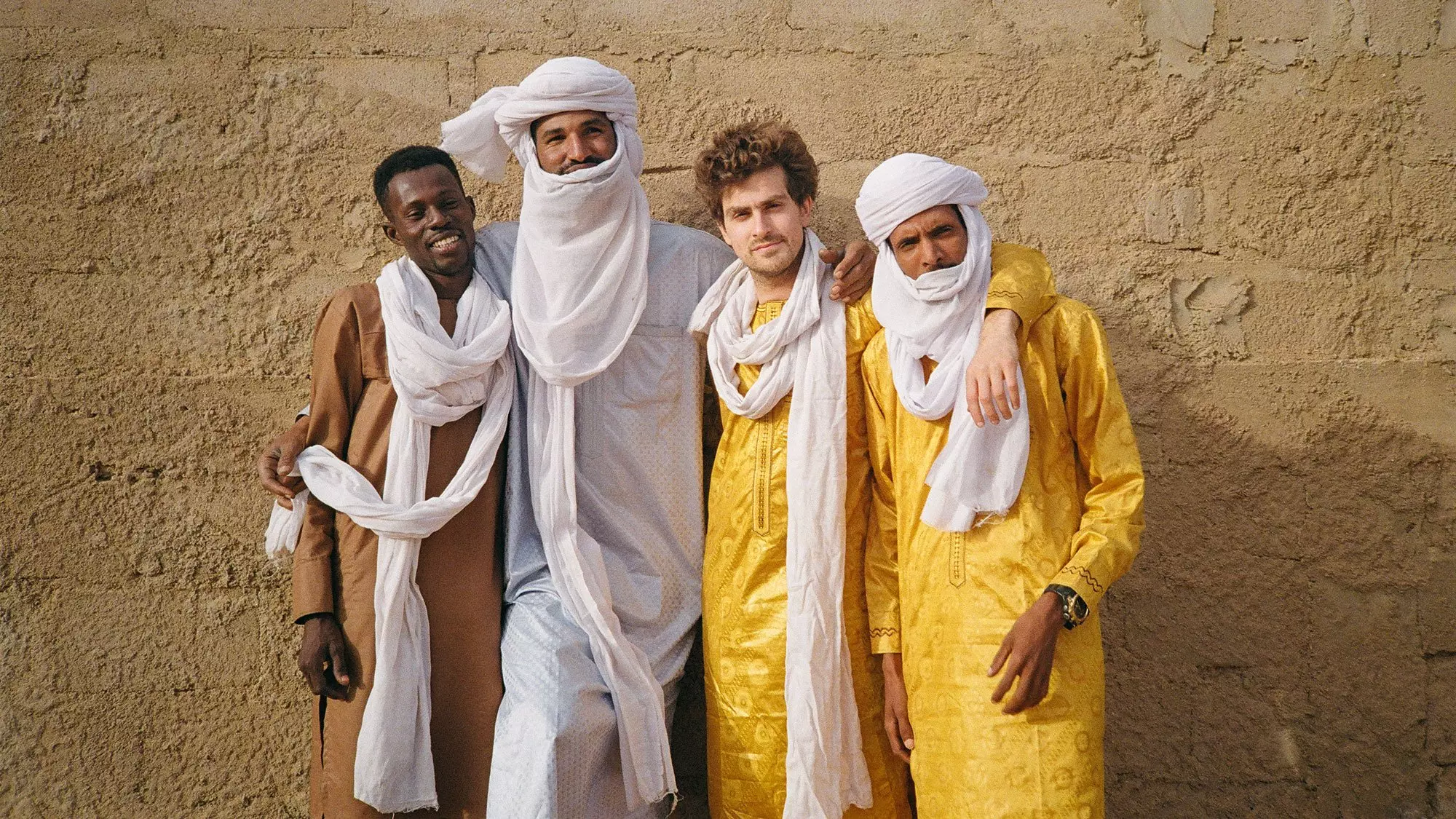
15 Essential Afrorock Songs: From The Funkees To Mdou Moctar
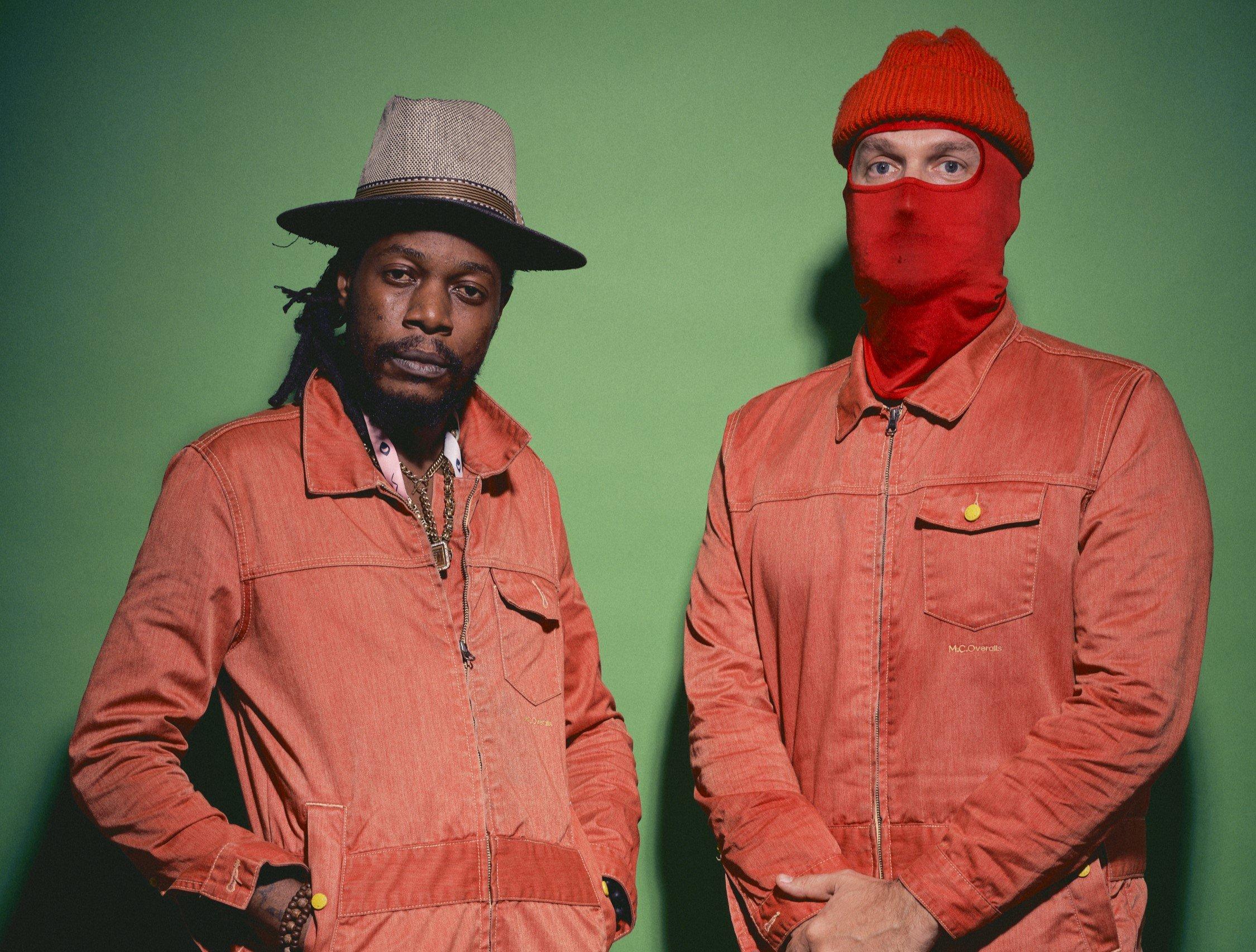
Photo: Sven de Almeida
interview
Meet KOKOKO! The DIY Electronic Group Channeling The Chaos & Resilience Of Kinshasa
The exciting live electronic act out of the Congo discusses their fiery, pulsing, sophomore album, 'BUTU,' the manic sound of Kinshasa, and using improvisation to keep their performances energized.
No one else sounds like KOKOKO! — they are a truly unique aural experience, an emphatic statement that does justice to the exclamation point in their name.
The experimental live electronic group out of Kinshasa — the active, populous capital of the Democratic Republic of Congo — is a reflection of their city. Their shouted and chanted lyrics reflect people's frustration with their government, as well as the sonic signals of industrious local vendors. Even their DIY instruments are an example of their resourcefulness: Although DRC is a resource-rich country, that wealth has been extracted by and for Western powers for centuries. Locals are left with limited resources and experience regular power outages and intense, ongoing conflict.
KOKOKO! was born after French electronic producer Xavier Thomas — who makes left-field, globally-influenced electronic music as Débruit — met talented local singer and musician Makara Bianko on a visit to Kinshasa. He was captivated by Bianko's large, nearly daily outdoor performances with his massive dance crew. The group, which also consists of locals Boms and Dido who fashion DIY instruments, incorporate much of Makara's improvisational and interdisciplinary energy into their music and energetic live show, while Thomas brings in synths, drum machines and other electronic elements.
After releasing their powerful debut album Fongola in 2019 on indie label Transgressive Records, KOKOKO! started getting booked at music festivals around the globe, as well as on NPR's Tiny Desk series and Boiler Room. Now, the cutting-edge group is pumping up the BPM and bringing the lively Kinshasa nighttime to the rest of the world via their urgent, high-energy sophomore album, BUTU, on July 5 on Transgressive.
Read on for a chat with Thomas and Bianko about their captivating new album, the music scene in the Congo, how their music reflects Kinshasa, and much more. (Editor's note: Bianko's answers are translated and paraphrased from French by Thomas.)
What energies, sounds and themes are you harnessing on 'BUTU?'
Xavier Thomas: "Butu" means night in Lingala [one of the national languages of the DRC]. The album is all about that high energy, specific atmosphere that happens when the night falls in Kinshasa.
It's a very loud and crowded city. It gets pitch-black quite quickly because it's on the Equator. The sun sets really fast all year long. The sounds of the city kind of wake up [at night]; the generators are plugged in and the club music and evangelical church music [start] competing. All the inspirations are from all these sounds and everything that happens in the night in Kinshasa.
The band plays a lot of DIY instruments; what instruments are on this album and can you point to their specific sounds?
Xavier Thomas: There're the go-to things and then there's the found objects or the ones you can build. Simple things that are kind of ready-made, like detergent bottles — you can play it with a stick with a little bit of rubber, and it kind of makes bongo sounds with a slight natural overdrive.
And you can also build your own string instruments with what you found on the street. For example, there's plastic chairs that have metal feet, and you can do a kind of metallophone with; if you chop the tubes, you will get different pitches, etcetera. You can find something in a mechanic shop that sounds really good straight away when you hit it; metallic percussion. So that's all the different DIY instruments or found percussion that you can make or work with.
Was it mostly the same instruments as the first album, or were there some different things you were incorporating as well?
Xavier Thomas: There are different things. Also, on this one, we use a little bit more of electronics, as it's a bit more upbeat and influenced by the club and the small music production studios of Kinshasa.
There are also some field recordings. For example, on some tracks, there's horns from moto taxis that we pitched and made melodies with. But yeah, it's roughly the same instruments.
The term DIY is often attached to the band. Of course, you just talked about the instruments, but I was also curious what DIY and improvisation looks like in your music-making process and performances.
Xavier Thomas: It was an all-over DIY thing when we started. I used to make a lot of the videos. We [still] work with a small team, so we always have problems getting visas. We're doing a bit of everything just to keep going forward and traveling and to get our music everywhere. So, the DIY is not just the music, it's [all very] hands-on. Even on stage, we don't turn up with a big team, it's pretty much us at the moment.
The DIY aspect came out of necessity for the music and instrument creators, of not being able to afford to buy or rent an instrument. So it started like that, trying to make a one- or two-string guitar, a two-string bass, and a drum set. And then it went beyond that, realizing we can find original and new sounds if we're not copying existing instruments.
When I met Makara, he was doing five-hour public rehearsals six times a week on his own with 40 or 50 dancers. He had to work out all the technical problems with power cuts and amplifiers exploding. Makara still has that energy, even when we're sound checking. A lot of that DIY intuition is still coming in.
The recording process has to be DIY because you're recording in outside music studios in little compounds or in difficult neighborhoods of Kinshasa, so there's a lot of sounds in the background. You just grab the moment where the energy, the music, the inspiration feels right. That's another DIY part of the project, it's pretty much recorded outside of recording studios for the most part.
How does that also speak to access to instruments, internet and music studios for music-making in the DRC more broadly?
Xavier Thomas: Well, there's some big artists in the Congo that have a lot of money and travel to play even in the U.S. and France. A few artists have everything they want and they're very famous and wealthy. But most of the studios I've seen are a tiny room in the corner of a compound, yet people are doing the most impressive productions and recordings with very little, whether it's electronic or live music. It's very resourceful and sometimes you don't hear it, you could not imagine it would be coming from such a small studio.
I wish I could ask about every song on the album, because it feels like there's so much energy and context in each one. Can you tell me about the opening track, "Butu Ezo Ya" — the energy starts out so strong. Is there a message behind that song?
Xavier Thomas: The first track is kind of an invitation. It's saying the night's coming, be ready. We have all the sounds that we grabbed in the streets. That's the track where the horns of the motorbikes are pitched and turned into melodies. It's an invocation, an invitation, to the listener to step in the Kinshasa night because it's really something.
We wanted the opening track to be a little bit overstimulating, which is the impression you have the first time you step into the night in Kinshasa. So that's the idea, to [channel the] overwhelming street sounds that suddenly from chaos become organized and become the opener of the album to invite you to the more organized music after. [Chuckles.]
Makara Bianko: I'm inviting people to step into the night, step into the album.
The album's next track, "Bazo Banga," is really captivating as well.
Xavier Thomas: "Bazo Banga" means they are scared. Sometimes people chant it when they're protesting. It can also be used in sport events about the other teams. There's a lot of frustrations in Congo; the population is a bit abandoned by the government. Sometimes there are political things that can't be said or expressed because it's a bit dangerous. So, in this track — Makara has explained the lyrics to me before — it's a way to regain a bit of control by trying to impress the other side.
Makara Bianko: There's another angle mentioned at the end of the track: We're bringing so many new sounds that their hips are not going to hold. They are scared they are out of date, that they will not be matching our energy or be able to move because we're going too fast. During the track, I'm quoting a lot of images of why they could be scared.
Xavier Thomas: In Kinshasa, our sound is still very different. At the beginning, with all the music, art performers, people who do body performance as well, who gravitate around our music and are sometimes part of the videos; [other] people thought we were all so crazy. The music didn't fit any standards there, even though Makara has a lot of influences, more when he was younger, in more standard music like Congolese rumba or ndombolo. I think people can still be a bit scared of our style and our energy, the people we work with, it's a bit different.
In what ways is your music incorporating — as well as radically shifting — traditional and popular Congolese music?
Makara Bianko: Growing up in Kinshasa, there's a lot of Congolese rumba and nbombolo. I'm also influenced by [Congolese] folk music, really old rhythms and chants. Congo is so big that this has just been mixed in our music, but we are presenting it like it's a new recipe. It doesn't taste like what you're used to even though the ingredients are there. There's also influences [in our music] from outside countries like Angola or South Africa.
Xavier Thomas: What struck me the most when I first met Makara at this concert — from my Occidental angle — he has a very punk energy. Even though people aren't listening to punk music in Kinshasa, Makara would stick his mic in the speakers and play with feedback, and he has a very powerful voice and sometimes a very threatening singing tone. It was not influenced from punk; it was his own energy, his own frustration.
I think music helps express the frustration a lot of people have in Congo, and people see that in him, through his anger and when he talks about things people encounter on the street that they can relate to. So yeah, some of the old folk music is there as influences, but it's very important to him to not do the same thing that a lot of artists have done for the last 40 years and to bring something new.
What's going on in Kinshasa and the DRC in terms of electronic music? Are there other DIY electronic acts coming up?
Xavier Thomas: There's a lot of electronic music now, I think the big scenes are in South Africa or Nigeria for big pop electronic music. Congo used to influence a lot of West Africa and Central Africa and now Nigeria and South Africa have quite strong industries, so sometimes there's a bit of that influence.
With more Congolese rhythms for electronic music, you can have the whole range from very pop to very alternative. In the neighborhood where we started, there's a few more bands coming up now with DIY instruments who play a bit more like folk music from the Equator region in the north of the country. In Europe, I've noticed three bands since we started that now work with more DIY instruments. There's a music producer, P2N, from the southeast of Congo who makes repetitive electronic music in a kind of hypnotic, dance way.
The band has been touring quite a bit since the first album. Locally, are you an active part of a scene, or is it more like you're doing something different there and bringing that around the world?
Xavier Thomas: We're still quite unique in Kinshasa, and if we play there it would be more of a block party. Makara has a lot of dancers in his crew, and dancers would join from the youngest at the beginning [of the show] to the more experienced, bridging between classic Congolese dance and more contemporary dance. There's a lot of theater in the dance as well.
When we play there, it's still alternative. Once in a while we might play a bigger stage, but we play out [of the country] way more in front of way more people. We try not to play too often [here]. It's a huge city, so it can be tricky with the power cuts and everything. It's more of the art scene and people from the performance art school and dancers who gather if we do an event in Kinshasa, it's not huge crowds.
You've performed on some pretty big platforms, as well as at global music festivals. What goes into your energetic live performance; is there improvisation?
Xavier Thomas: It's key that we are still incredibly passionate, and we feel the music and leave a lot of space for improvisation. Then we can surprise each other, even during a gig. One track can be one length or double the next time, depending on the feeling, the crowd, the sound system and the time we play.
Usually, people end up really moving, sometimes without realizing. We don't spare any energy. You end up drenched in sweat. I think because our excitement is real, the music is not over-rehearsed. We're still always excited at every show. I think people can feel that it's not staged. There can be unexpected things happening, which keeps us energetic, motivated and surprised on stage.
How does the band usually feel after a performance? Is it a cathartic experience?
Xavier Thomas: Well, we have our kind of ceremonial thing. We usually talk together at the beginning; we gather and stick our heads together, and we say where we are and what we want to achieve. At the end of the concert, the whole hour or so feels like it's passed by really quick, and you're still left with that rhythm or energy, even though you might be super tired, sometimes traveling and playing every day. Sometimes we have more energy at the end. At the beginning, we feel tired, and then the energy really comes in, and we feel super energized and super sharp and really awake at the end. It's good for us.
What does Kinshasa sound like to you?
Xavier Thomas: For Makara and I, to explain to somebody who's never been to Kinshasa, it's a very sonic city. I've never seen [anything like it]. It's so crowded; I think it's 15 million or 18 million people now. [Editor's note: 17 million is the latest estimate.] Everybody lives on the ground floor. There aren't too many high buildings, so the density of people is very high. For this reason, it's visually a bit crowded and overwhelming with people, cars, colors and everything.
Therefore, to be noticed or stand out, everybody needs to have their own little signal or jingle. You can tell who's around you with eyes closed. A nail polish vendor would just bang two little glass polish bottles; that sound carries far away and they have their rhythm. People who sell SIM cards have a loop on their megaphone.
Sound is how to be noticed; how to sell yourself, what's your role, what's your identity. That's obviously, without talking about music and sound systems. Churches have their own huge sound systems and they can clash with the club in front. Also something very typical in Kinshasa; it goes to the fullest, to the max, everything is used at its highest potential. The sound is pushed in overdrive and distorted because you want to be louder than the next person. It's all these little sound signals that can tell exactly who's around you or sometimes where you are as well. For me, that's the sound, plus the traffic.
Wow. It must be so different going somewhere more remote, or just where it's quieter. It must feel almost like something's wrong.
Xavier Thomas: There's not many moments with silence because at night the city is still alive. People like to go out. You can have a church next to you with a full live band and a huge PA sound system at 3 a.m. Quiet moments are rare.
Makara: It's hard to deal with silence. I don't feel comfortable in silence because I've never really experienced it.
Latest News & Exclusive Videos

NIKI Covers Goo Goo Dolls "Iris"

Meet GRAMMY U's 2024-2025 Student Representatives

Peter Cat Recording Co. In 'BETA' Mode: How The Elusive Indian Band Melds Sounds & Sincerity

Get To Know KATSEYE: The Global Girl Group Styled After K-Pop Superstars

Dave Navarro Talks Jane's Addiction's "Imminent Redemption" & The Foursome’s "Secret Sauce"
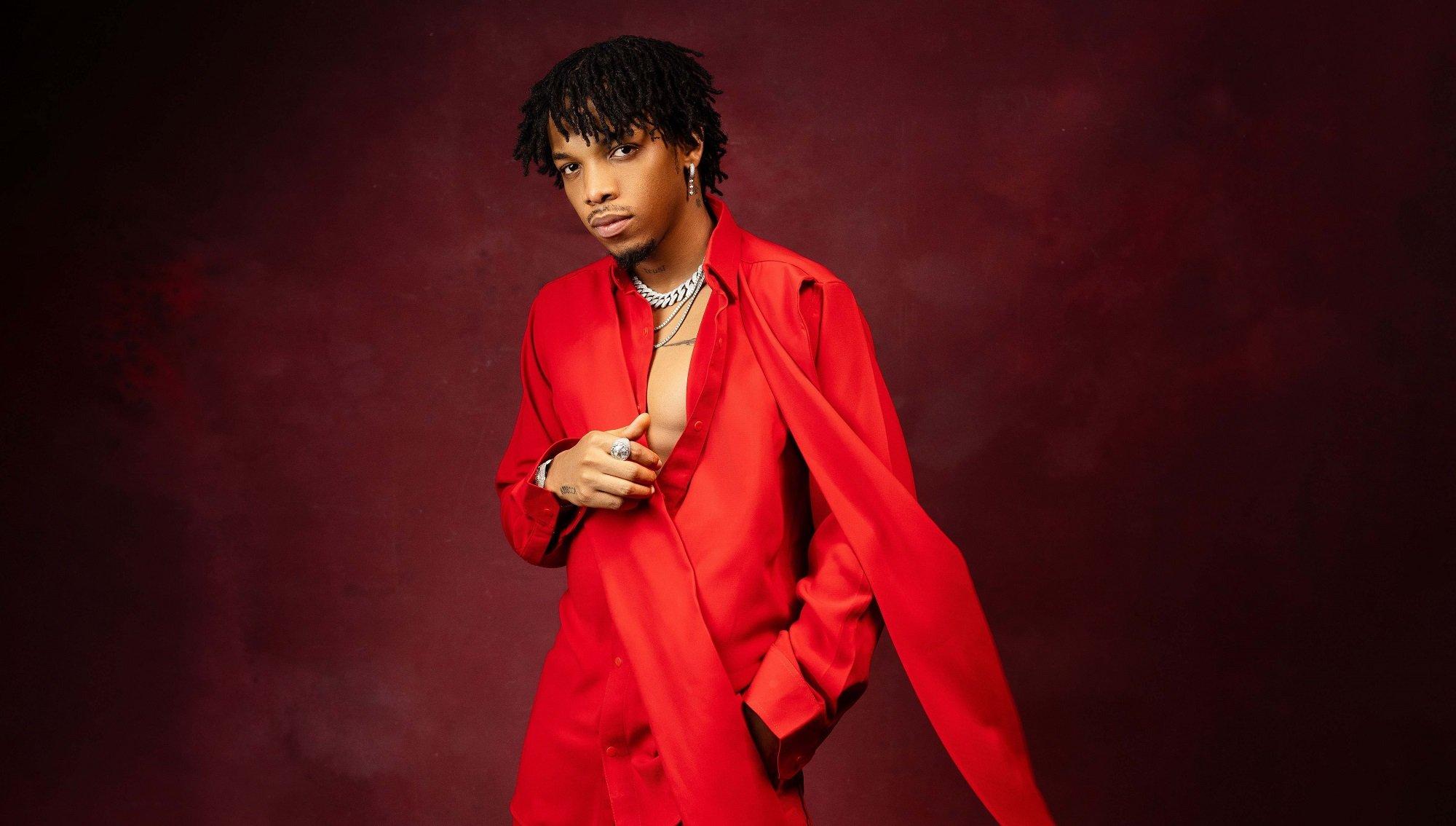
Photo: Emmanuel Oyeleke
interview
Tekno Talks New Music, Touring America & His "Elden Ring" Obsession
Ahead of his Back Outside tour, which hits the U.S. June 22, Nigerian artist Tekno details the origins of his name and sound, as well as his predictions for the future of African music on a global stage.
It takes a lot of guts to declare yourself the "King of Afro-pop," but Tekno has the hits to back it up.
The Nigerian artist is a staple of the country’s Afrobeats scene, responsible for massive hits such as "Pana" (over 66 million Spotify streams). He’s collaborated with massive artists across the world, starting in 2012 when he enlisted Davido for his breakout single "Holiday." He’s also entered the studio with the likes of Drake and Swae Lee, and Billie Eilish is a professed fan.
Despite this, Tekno hasn’t quite reached the levels of fame that colleagues WizKid and Burna Boy have stateside, but that may be about to change. He’s touring extensively across the U.S. this summer as part of his Back Outside Tour, supporting his 2023 album The More The Better. Tekno also recently inaugurated a label partnership with Mr. Eazi-owned emPawa Africa, defecting from SoundCloud.
The video for his latest single, "Wayo," features the artist as a cab driver going through relationship problems. It's a perfect example of Tekno’s classic pan-African pop, with romantic lyrics and a sweetly melodic sound.
GRAMMY.com caught up with Tekno ahead of his tour, which kicks off June 22 in Columbus, Ohio, to chat about his new music, career goals, and a surprising video game obsession.
You recently released a new single. Tell us a little bit about "Wayo?"
"Wayo" is basically me just tapping into my roots sound, the original pan-African Tekno sound. Our music has morphed and just grown into so many different sounds over the years. And it's very easy to forget that this sound existed before all this music that's playing right now. So I had to deep dive into that. That's basically how I describe "Wayo," I call it a basic Tekno love song. Like it's basically how I started really.
I don’t know if you’re aware that there’s an entire genre of music called "Techno?"
Yes, yes, it’s close to house music.
They’re pretty close. Actually, techno music was invented here in America by Black musicians in Detroit.
Oh, wow. Yeah, people don’t really listen to the techno genre out here yet. They prefer more melodic and groovy music.
So in that case, I did want to ask you about your artist name. Because if people don’t really listen to techno music in Africa, where did your name come from?
I was much younger, and I was looking for a name while I was in church. I’m a Christian, so I was looking for a name that had some form of Christianity to it, even though I knew I wanted to be a secular artist. And then I found this name, "tekno," and it's Hebrew, it means something like "God's people" or "God's word." It's spelt a little bit differently, I can't really remember. But I just liked the meaning of it, and the name stuck with me. And that's how I started calling myself "Tekno."
You've declared yourself the "King of Afro-Pop." Why do you consider yourself to be the king of Afro-pop, and why that instead of the King of Afrobeats or another label like that?
It's more of a personal thing in a way. My favorite artist of all time, forever, will always be Michael Jackson. And Michael Jackson is the King of Pop. So when I named myself the "King of Afro-Pop," it’s because I like Michael Jackson, but it's also because I'm the king of Afro-f—ing-pop. So the name just kind of has a good ring to it.
I want to talk a little bit about partnering with Mr. Eazi; why did you decide to join EmPawa? What do you think the partnership holds for your future, and for the future of music in Africa?
I just love making music so much, that's the goal for me. And I've gone from camp to camp, level to level, and after a while it just starts to wear on you. I don't want to just keep moving from Triple MG to Universal to SoundCloud; I want my own thing that’s a little more permanent. And Eazi is not just my friend, he's my brother. We've been talking about this for years, about doing business together.
There are reasons why it made so much sense for us to come together, but I don't want to share everything. But I like being a priority. If I'm on SoundCloud, I don't want to be on a list of 27 artists where I'm maybe number 18 and my music doesn't get the focus it needs. Like, say I put out a song, and everyone on SoundCloud has gone on holiday. And I'm not aware because I'm Nigerian, I don't know that this day or that day is a holiday in the States. But working with a brother and a team that is home, where we know the system and we understand the culture, it's just way, way better. Because we know ourselves, we know our culture. So working with a brother that has this amazing setup at EmPawa, it just made so much sense.
Read more: Mr. Eazi’s Gallery: How The Afrobeats Star Brought His Long-Awaited Album To Life With African Art
You've collaborated with some American artists before, and Billie Eilish said she is a big fan of yours. Is there anyone in the U.S.-UK ecosystem that you would consider a dream collaboration?
I’d definitely love to work with Billie Eilish. 100 percent. But Drake would always be my favorite collaboration, just because we've been in the studio together. We've talked about it. You know, if I start something I want to see it finished.
He's just an inspiration to the business. Drake, he makes you know that you gotta work, because as big as Drake is he works harder than everybody else. That’s not to say that I wouldn’t love to collaborate with so many other artists whose music I really love.
Are you following the beef between Drake and Kendrick at all?
That was so good, man. I didn't consider that a beef, because when I would watch boxers in the ring fight, let’s say I'm watching Mayweather vs. Pacquiao, it doesn't matter who I'm a fan of. It doesn't matter who wins, I'm entertained.
As a big fan of music, I enjoyed every Drake song and I enjoyed every single Kendrick Lamar song. But if you ask me who I prefer, I would always pick sides and choose. But was I entertained? I definitely was, for sure.
How is working with Americans different from working with Africans? What are the distinctions you find between the two?
Back in Nigeria we don't work in big studios, we work at home. Like, if I want to work with Wizkid I would probably go to his house, or he would come to mine, and we would make music there. But if I'm going to work with Travis Scott, we're gonna go to the studio. If I'm working with Billie Eilish we're gonna go to the studio.
You’re touring North America this year. Do you have any expectations, or anything you’re looking forward to?
I'm just happy to be back outside. I went through this period where I had lost my voice in 2019. And after that happened, and I went through surgery in New York, Corona[virus] happened right after.
And in this whole period, I kind of just stayed away from how much I worked and how much I put out music in the past. I feel like I got used to not being active, so I haven't necessarily been performing for a while. That’s why this tour in the U.S. is called The Back Outside Tour. Because for a long time I haven't been outside, I haven’t been performing, I’ve just been at home.
I like to game [and] I like to make music. I make so much music, but I feel like being home has kind of restricted the amount of music I put out. Because anytime I’m outside, I just get this feeling like I want to conquer the world, I want to do more; I want to put out more.
I want to do more than I've done in the past. So this tour for me is just getting back outside, just getting myself out there and just being on the road heavy. You get lazy if you stay home for too long; we’re habitual creatures. So now I have the mindset that I have to forcefully keep myself out there and just be outside. I'm gonna be touring for three months in the U.S. That's a long time.
You mentioned you’re a gamer. What have you been playing recently?
Recently I've been on "GTA V"; the online is extremely good. Just because it has this plethora of radio stations where while you're gaming you can still bask in this vast playlist. And it’s just fun because you get to play with people around the world. I [also] have this Nigerian community I play with. It's like a way to just be around the people even though I'm in the house, so it's really lovely. And "Call of Duty" is a great one too. But my all time favorite I would say is "Elden Ring." I got locked into Elden Ring for like eight weeks.
Amapiano has really become the dominant sound coming out of Africa in recent years. What do you think will be next?
Tekno sound! They miss it! My sound is like "Game of Thrones," season one to seven.
Not season eight.
Not season eight. I didn’t say that, you said that! [Laughs.]
Basically, I’m not saying amapiano isn’t beautiful music, I’m not saying Nigerians haven’t found a way to evolve it in a way that’s different from the South African type. The South African sound will always be the original one, and every time you record on a South African amapiano beat, you can just tell the difference in the sound. It’s their culture, they own it.
But we [Nigerians] are extremely good at taking your sound and putting our own flavor on it. It’s still your sound, but we play with it. So I feel like it’s been two years of the same [amapiano] and after a while people are gonna want another type of song. I’m not saying Amapiano will go away all of a sudden, it’ll never go away. But people want that pan-African sound. The local rhythm. And Tekno got that.
Learn more: 11 Women Pushing Amapiano To Global Heights: Uncle Waffles, Nkosazana Daughter, & More
Can you go into detail? How do you describe this pan-African sound?
These are songs that always tell a story, it’s never just random. "Wayo" is talking about, "If I invest in my love, would I get a return?" "I no come do wayo" means I'm not trying to play games. I'm serious. If I invest in this love, would I get it back? This thing we call love? Do you truly believe in it? Or you're just with me for the sake of dating somebody?
This type of music always has a deep rooted message in the melodies; it's not just like a regular party thing. There's always a good tale behind the sweet melodies. So like, no, no matter how new school our music goes, this type of sound would always be this type of sound. You're not taking it where. It’s culture.
The video for "Wayo" shows you driving a cab. Did you ever have to hold down a day job like that before you became a successful musician?
Oh my god. I've been a houseboy. I catered for four little kids. They were so stubborn, man, that was the hardest thing I've done in my life. [Laughs.] That would have to be a different interview. I've worked in churches, too. I grew up from a very humble background and I'm grateful to God that I experienced that.
Tems On How 'Born In The Wild' Represents Her Story Of "Survival" & Embracing Every Part Of Herself
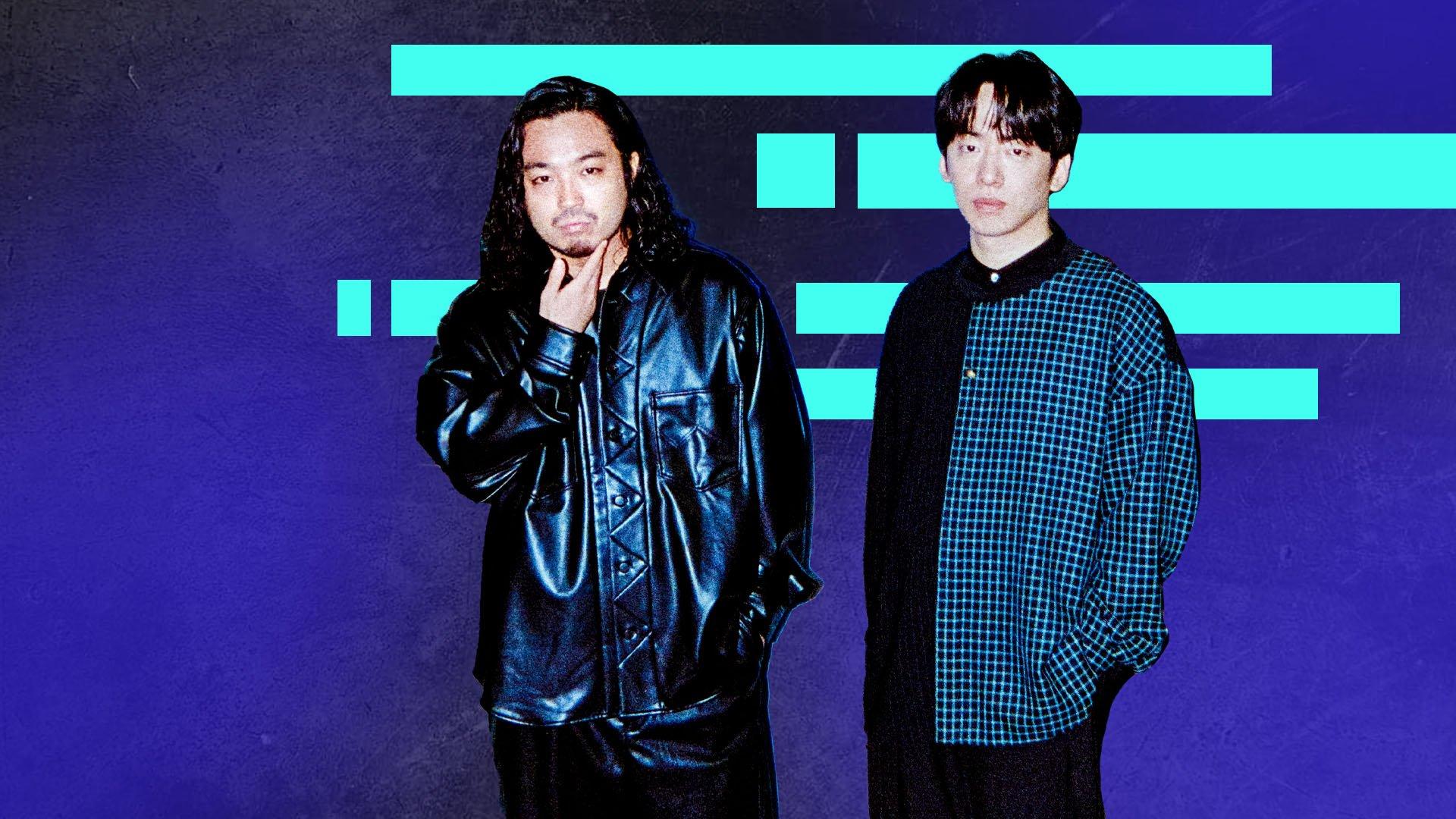
Photo: Courtesy of Creepy Nuts
video
Global Spin: Creepy Nuts Make An Impact With An Explosive Performance Of "Bling-Bang-Bang-Born"
Japanese hip-hop duo Creepy Nuts perform their viral single "Bling-Bang-Ban-Born," which also appears as the opening track from the anime "Mashle: Magic and Muscles."
On their new Jersey club-inspired single "Bling-Bang-Bang-Born," Japanese hip-hop duo Creepy Nuts narrate the inner monologue of a confident man, unbothered by others’ negativity and the everyday pressures of life.
In this episode of Global Spin, watch Creepy Nuts deliver an electrifying performance of the track, made more lively with its bright flashing lights and changing LED backdrop.
"Before I show them my true ability/ My enemies run away without capability," they declare in Japanese on the second verse. "Raising the bar makes me very happy/ ‘Cause I’m outstanding, absolutely at No.1."
"Bling-Bang-Bang-Born" was released on January 7 via Sony Music and also serves as the season two opening track for the anime "Mashle: Magic and Muscles." The song previously went viral across social media for its accompanying "BBBB Dance."
"Basically, the song is about it’s best to be yourself, like flexing naturally. Of course, even though we put effort into writing its lyrics and music, it’s still a song that can be enjoyed without worrying about such things," they said in a press statement.
Press play on the video above to watch Creepy Nuts’ energetic performance of "Bling-Bang-Bang-Born," and don’t forget to check back to GRAMMY.com for more new episodes of Global Spin.
From Tokyo To Coachella: YOASOBI's Journey To Validate J-Pop And Vocaloid As Art Forms
